That said, my experience still excites me because it gives me great hope the culture of the larger Latter-day Saint community will soon eliminate what has traditionally provided the greatest challenge in LDS singles life. Just as we know rain will fall when we see storm clouds gather, we can see the cultural signs around us indicating a change is gonna come. How it’s been  I’ve long spoken on this platform about the challenges LDS singles have traditionally faced. For those who may be new to the audience, the bulk of those challenges stem from our family-centered culture. Traditionally, LDS culture has centered on family. That means the marker of belonging to that culture is being married with kids, because that’s what having a family has traditionally meant. Because everyone has a deeply seated need to belong to a larger group, LDS singles have struggled to belong when the marker of belonging is something they by definition don’t have. That’s why for years I’ve called for a change in the culture to one centered on Christ. The marker of belonging in that culture would be discipleship. Such a culture would both support the family while being inclusive of those who are different. No matter your background or your situation, you can work to make and keep sacred covenants that everyone else in the LDS community makes. You can be a disciple. You can belong. A new hope I kept affirming my message of cultural change despite the appearance of little if any move in that direction. But that all changed in 2018. That’s when I saw my first glimmer of hope. That’s because that’s when the Brethren unveiled the ministering initiative. My heart jumped for joy while I physically jumped on my couch at hearing the announcement. I saw then a shift in perspective to see inquiring after the needs of others not as a duty, which is what home and visiting teaching had largely become, but as an opportunity to build the kingdom and grow in discipleship. That’s exactly in line with the vision I’ve always proposed for the most successful singles groups. They focus on bringing everyone together and making everyone feel they belong. They know it doesn’t matter what people’s background or circumstances are, and they proclaim that knowledge in the way they act and treat others. Seeing this shift announced in General Conference brought me a new hope that the change I had been talking about for years could be on the edge of unfolding into reality. The future’s bright  That’s why I was so excited when I saw what appeared at the time to be a change in the home page of the Church website. The layout and content were all focused on Christ as the center. And they combined together to create a unequivocal message of belonging no matter your background or circumstances. I’ve always believed our Church leaders on the global level have been aware of the singles. Many of the failings LDS singles have cited have root in local leaders who either haven’t understood how to minister effectively to singles or have been so busy with other priorities that ministering to singles simply didn’t happen. But all of that will be history. Change is gonna come! We can look forward to the future with hope and optimism in a brighter and better day. Our Lord truly knows us and our circumstances. He’ll inspire His disciples to move in a more positive direction while at the same time exercising the compassion of patience in respecting their agency to implement those changes. Let us also exercise the compassion of patience in respecting the agency of our leaders, both global and local, while also helping them to improve in their ministering efforts towards us and other LDS singles. As we do, we’ll make the ground more fertile for the changes that will come. And that will bring us more joy in our journey.
0 Comments
That one part is completely true. They are torturing themselves. Your focus always determines your reality, so when you focus on what you don’t have, your reality becomes one of lack and emptiness. Because each one of us has agency, we choose our focus. And that means we choose our reality. Indeed, these sisters are torturing themselves. Their wanting serves only to amplify the effect. Of course, that truth doesn’t excuse married Church members from lacking sensitivity. In recent years, I’ve noticed more married Church members displaying more sensitivity. Nevertheless, not every ward is like that. We still have work to do. In the meantime, it’s productive for all of us to shift our focus towards what Mother’s Day was intended to celebrate. All of us have a mother who bore us and a mother who raised us. For some those two women are one and the same. But either way, we can each answer this question: “How’s your mother?” Start appreciating  Just as focusing on your lack produces a reality of scarcity, focusing on what you have produces the opposite reality — one filled with abundance and plenty. Your life shifts substantially in the improvement direction when you exchange your expectation for appreciation. It’s all starts with an attitude of gratitude. So many create disappointment by expecting too much. We want, want, want. And very often what we want, however righteous that desire, centers around something we don’t have. Because our focus always determines our reality, focusing on what we don’t have produces a reality of lack. And the more deeply we want, the more deeply felt that lack becomes. But exchanging your expectation for appreciation creates something amazing. By constantly expressing gratitude, we can shift our focus towards what we do have. And focusing on what we do have creates a reality of abundance. The more deeply we appreciate, the more deeply felt gratitude becomes. We can bathe in the joy of feeling richly blessed. Shift your focus  That feeling is completely legitimate because it results from how we’re constructed. Your focus determines your reality. That principle applies to everything, including Mother’s Day. Focus on what you don’t have, and you’ll take no joy in the celebration because your reality will be so full of emptiness you won’t want to celebrate. On the other hand, if you can focus on the good about the day, then you can have a joyful reality you’ll want to celebrate. I know that can be challenging. As I said before, not every ward displays sensitivity to singles. It’s hard to stay positive when the dream you don’t have but most desire gets highlighted every week at church. I know what it’s like to get constant reminders of what you lack rubbed in your face every week. I know it’s hard. I also know what hard means. It doesn’t mean impossible. It just means difficult. And difficult can become easy when you partner with the Lord. Move forward  The Lord can guide your focus towards the blessings you have today because your mother sacrificed. When you trade your expectation for appreciation, you open yourself to receive more of the joy life has to offer. And if your relationship with your mother needs work, you can focus on what you can do to improve that relationship. Even good relationships can be improved, so focusing on doing something in that arena is good advice for all of us. Even if your mother has passed on to the other side, you can still find ways to express appreciation and improve your relationship on your end. So I ask once more, “How’s your mother?” which is really just another way of asking “How’s your focus this Mother’s Day?” Your focus will always determine your reality. So make the positive choice. When you embrace a positive focus, you’ll receive a positive reality. And that will bring you more joy in your journey.
I went to a clinic where a doctor ran some tests and came back with a diagnosis I didn’t believe then and still don’t today. But I wasn’t about to argue with the doctor while in pain. I didn’t want to postpone the relief that drove me to see the doctor in the first place. The doctor prescribed some meds, I followed his directions, and the chest pain went away. But then arrived stomach pains and more intense vomiting. I couldn’t keep anything down. After I vomited everything so I knew my stomach was empty, the stomach pains vanished only to be replaced with abdominal cramps. I didn’t sleep well that night at all. I’m in recovery now, but as I’ve always been the pensive and reflective sort, I certainly can’t resist reflecting on this experience. As I do so, I can see clear connections between my experience and Elder Gong’s Conference address. All of our lives have been greatly blessed by covenant belonging. A culture in change 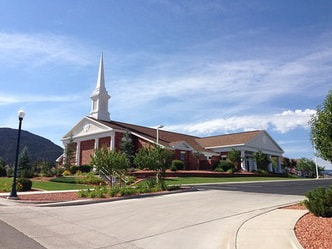 When I first heard his address in Conference, Elder Gong’s description of a gospel culture centered on Christ impressed me. Indeed, true gospel culture is centered on the Savior and solidified by covenants we make to serve Him and each other. Yet traditionally LDS subculture has centered on marital status as the marker of belonging. And that center has caused countless challenges for many LDS singles. Long time audience members know I once harped endlessly on our need to change the culture. The problem is in how singles think, yes. But the problem is also in how everyone thinks, and that thinking is manifested in culture. Elder Gong cuts through all of the bunk to the real heart of a Zion culture — making and keeping sacred covenants to become more like Jesus Christ.
God never looked at His children through the lens of marital status. I’m not entirely sure why we as a people ever did, but I rejoice in our culture changing for the better. A bridge across the gap  I also rejoice that Elder Gong’s message to center ourselves in Christlike covenants is not the first apparently aimed at changing the culture to adopt a more ennobling marker of belonging. Albeit not as directly as I have, various Church leaders have occasionally spoken about the divide between singles and marrieds in LDS culture and our need to bridge the gap. Elder Gong followed suit in addressing that divide but doing so in a somewhat less indirect manner.
I love that balance between including singles and promoting marriage and family. These two elements were never meant to be mutually exclusive! Those who understand the concept of covenant belonging see that truth plain as day. A place to belong 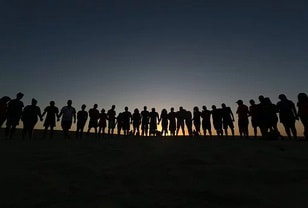 You may be wondering now what all of this has to do with my near miss of a heart attack. It’s very simple. I belong as all LDS singles do to a community bound together by covenants to serve the Lord and serve one another. The day after my near miss, my ministering brother and a member of the bishopric were in my home visiting with me and providing a priesthood blessing. Now, I know that doesn’t happen everywhere. I’ve been in some of those wards where it doesn’t happen. But if you find yourself there, I can assure you it will pass and you will come to a better place if you stay faithful to your covenants and do your best to practice covenant belonging. The Lord is mindful of all of us. I know He’s been mindful of me. Feeling that love has renewed my desire to be true to my covenants and to exemplify God’s definition of real belonging that we can find therein. And it is by living covenant belonging that we can best feel that love. And that will bring us more joy in our journey.
Here we find foundational principles local leaders can leverage to help LDS singles find their way. Walk beside singles We all understand others better when we step outside ourselves and view the world through their eyes. That increased understanding can open your eyes to what many LDS singles need — true friendship. My last ward was absolutely awful. Usually no one talked to me or even greeted me. They didn’t seem at all interested in having me there. So when the storms of life beat against my door, no one was there to support me. I felt not just alone and unloved but spiritually stinted, like I was trapped in a sort of prison. What a nightmare! If nothing else, that experience makes me very thankful for my current ward. Ward members greet me, shake my hand, and sincerely ask after my well-being. They’ve responded when I needed help and support. I feel the warmth of their simple love and sincere friendship. What a blessing! It doesn’t take much to help LDS singles feel loved and supported. When local leaders — whether married or single — walk beside singles in true friendship, those simple acts can readily meet many needs. Shore up faith 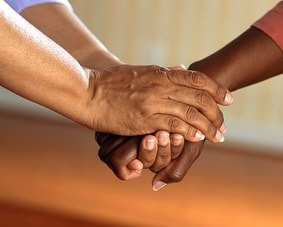 True friends always increase faith in others. Our Heavenly Father wants LDS singles to marry in the temple and raise righteous families who will promote His work on the earth. That won’t happen if singles don’t believe it will. Local leaders can portray faith and confidence in singles’ ability to achieve a righteous marriage. How are LDS singles supposed to believe those blessings can be theirs when leaders respond quickly with trite expressions like “Well, it’s OK because there’s always the next life.” That’s true, but have you stopped to consider what living that really means? You’re saying it’s OK the experience singles have already had being single continue for another 40 or 50 years, and then they die, and then sometime after that they get their blessing. That’s not a very enticing prospect, even if it is true. It’s far more enticing to fix one’s sights on examples like Abraham. His promised covenant child came when Abraham and Sarah were both around a century old. Or how about Jacob’s wife Rachel, who for the longest time was barren? I love Genesis 30:22 — “And God remembered Rachel ....” Local leaders who shore up singles’ faith in themselves and their ability to achieve eternal blessings now and not just in the next life provide greatly needed support. Promote the next essential ordinance Of course, securing that next essential ordinance of temple marriage takes more than belief or a motivational pep talk. The lives of many LDS singles stagnant in a lack of accountability. Local leaders are well positioned to provide that accountability. Life has a way of beating us all into routines. We are, after all, hardwired to have habits. That can be helpful but also dangerous, especially if we’re lulled away from progressing towards eternal goals. The longer singles remain single, the more comfortable they can become being single. And with that comes less likelihood they’ll progress towards their next essential ordinance. Local leaders can stem that tide of indolence with some gentle accountability. If they’ve paid the price to be a true friend, local leaders — and in particular ministering brothers and sisters — can guide singles towards their next essential ordinance with effective questions. “What’s in your way?” is a good example. As they repeatedly ask questions, simply listen, and then stand ready to help as requested, local leaders extend accountability for progression as singles decide for themselves how they will progress. When they support singles by being a true friend, local leaders can minister more effectively to LDS singles. That will increase the love we all have for one another. That will build bridges of understanding between marrieds and singles. That will develop a stronger unity of the faith. And that will bring us more joy in our journey.
 We all have times when darkness surrounds us so much we can’t see any ray of light offering hope for a brighter tomorrow. That’s life, something all of us experience at one time or another. Of course, there’s always hope because there’s always Christ. The Light of the world can light our way so we can see and take the next step in our eternal journey. The dawn will always come. The sun will always rise, offering the hope of a new day. Whatever darkness surrounds us is never permanent. In this universe created for our journey in mortality, there’s always hope because there’s always Christ. As great as it feels to step out of darkness into the light, there’s always someone experiencing a dark time, so whenever we sit in sunshine, someone else droops in darkness. Do we remember our own experience with darkness enough to turn our hearts in compassion towards them? Sailors looking for the blessed shore in the dark have always sought the lighthouse — the beacon of hope as well as the warning of nearby danger. No matter our own individual circumstances, we all can lift those who despair in the darkness. We can be the lighthouse. Let your light shine  In the Sermon on the Mount, the Light of the world taught His disciples to shine their own lights, because “a city that is set on a hill cannot be hid. Neither do men light a candle, and put it under a bushel, but on a candlestick; and it giveth light to all that are in the house. Let your light so shine before men, that they may see your good works and glorify your Father which is in heaven” (Matthew 5:14-16). Certainly our righteous works can shine the light of example for others to follow. But our light can shine also from our attitude, our faith, and our hope that the sun will always rise and bring a new day. We can each believe in the bright and glorious future our Heavenly Father has prepared for each of us in this life. When we share that attitude, faith, and hope with others, we help them see their full potential. And seeing that potential is the first step to achieving it. Reaching out to others also exemplifies what we all must do to press forward towards achieving that potential, since no one achieves anything meaningful in life alone. We all need a larger community in order to become our best selves and live our best life. Warn your neighbor  Involving that larger community, however, can present a real challenge. Its greatest blessing is also its greatest bane. You can’t feel a sense of community unless the action occurs in both directions. If we aren’t reaching out to each other from both directions, one group will inherently feel disenfranchised. It’s common to see marrieds reach out to marrieds. But marrieds also need to reach out more to singles, singles need to reach out more to marrieds, and singles need to reach out more to each other. A part of that reaching out needs to involve education. We need to help each other to become aware of the connections we have to one another as fellow citizens of the Kingdom. Notice I didn’t say responsibilities or duties. I said connections. We’re all interconnected, even if we don’t feel we are. The challenge is for all of us to begin acting in ways that help everyone feel more palpably those already extant connections. Shine in the dark  That’s where being the lighthouse can take center stage. When we stop putting each other into boxes, quit looking through generational lenses, and see each other as God sees us, we both see more clearly our connections to others and provide an example for others to see the same for themselves. And that’s when the real magic happens. When you’re part of a community where each member truly cares about everyone, everyone can draw hope and strength from the love that permeates the group. Everyone both is connected and feels connected. But that can’t happen until everyone plays their part. Many marrieds are so caught up in their own world that they aren’t likely to take the initiative towards that wonderful unity of the faith. That means we singles must make the first move. We must be the change we seek in the world. So be the lighthouse. Shine your light of goodness into the world around you. Make your unique contribution that can bring hope and encouragement into the lives of others. When you adopt your own personal ministry to improve the lives of others, you’ll find your own life improved. And that will bring you more joy in your journey.
 LDS singles can easily feel like second-class citizens in the family-centered culture of the Church. The continual focus on something we don’t have just makes feeling like we belong and staying positive and optimistic more difficult. Of course, the Church must teach the doctrines related to the family. How could they not? “The Family: A Proclamation to the World” begins with the solemn declaration “that marriage between a man and a woman is ordained of God and that the family is central to the Creator’s plan for the eternal destiny of His children.” Yet teaching the gospel as though everyone has the ideal situation serves more to alienate those who are different than invite them to continue participating. We need to teach the doctrines related to the family while at the same time help those who don’t have that ideal situation to feel fully included in the Kingdom. The way forward likely includes a recognition that we’re each at different points along the path to the same heavenly home. And we must testify with our actions that, no matter where along the path we may be, all of the gospel is indeed for all of us. Embrace inclusion 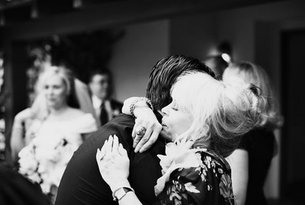 That recognition will carry more weight when we truly care for everyone around us. Words in Sunday School about a wonderful and inclusive ward family mean little when singles are left to confront the storms and other challenges of real life on their own. Often, lessons about the family focus on the needs of those who are married. Broadening that focus to recognize those who don’t have the ideal family structure in their lives can provide a foundation for inclusion. Spending some time during lessons applying the family doctrines to singles as well as to marrieds can further that sense of inclusion. For example, we read towards the end of the Family Proclamation,
Whereas marrieds strive to maintain their families, singles strive to create new ones. Why must lessons focus solely on those who already have families? Why can’t they include those who are trying to create them? For instance, we can include examples of applying the principles in the Family Proclamation to dating. When considering a dating prospect, do we truly prize qualities such as faith, forgiveness, respect, and compassion? Or do we refuse a prospect who may have those qualities in spades but lack the more worldly qualities not mentioned in the Family Proclamation? Look inside
My single brethren, how are your presiding skills? D&C 121 is a great start if you need a refresher. How is your ability to provide the necessities of life? Note the word necessities doesn’t include fancy sports cars or weekly shopping sprees at the mall but does include putting a roof over people’s heads, food in their bellies, and a pillow under their heads at night. If you find your ability to provide lacking, what are you doing to improve? Single sisters, don’t think you’re getting left out here. How are your nurturing skills? Again, if you find your ability lacking, what are you doing to improve? Let all help all  As a divinely inspired document, the Family Proclamation is filled with wonderful sentences that can both teach the doctrine of the family and help everyone regardless of their situation to feel included in the larger community of the Saints. However, of all the sentences in the Family Proclamation, I do have a favorite. It’s this one: “Disability, death, or other circumstances may necessitate individual adaptation.” I love that sentence! Why do I love that sentence so much? Here the Brethren acknowledge that life is sometimes less than ideal and those who find themselves so situated are still acceptable before God so long as they do their best with what they have. Note that “individual adaptation” applies to more than just those who find themselves in less-than-ideal situations. It applies to everyone. We’ll never truly live in Zion until all of us labor to help all of us along the path home. That’s because we can’t live in Zion without embracing all of the gospel. And all of the gospel is indeed for all of us. Ministering to everyone around us and not just those who are like ourselves may be difficult at first. But if pursued honestly, it will bring us more joy in our journey.
 It’s Conference time again, and I can hardly wait! Church in my ward has turned into a real trial. So many people, all married, have talked from the pulpit week after week about how wonderful the ward is because others were there to help when the needed them. I really am happy about that. But when the storms of life came crashing on my door, who was there to help me? It’s not just occasionally; it’s a consistent pattern of neglect spanning over three years. From where I sit, it seems like my ward is just a club for married people. The last time I talked with my bishop about my feelings, he told me, and I quote, "I don't know what to do with you." Hey, I love the honesty. What I don't love is that he left it at that. He's shown no interest in looking for the answer, or even an answer. That's why I reached out to my stake president. And that's where things got really trying. Where my efforts got me  I explained my circumstance to my stake president via email. Initially he asked for some time before replying, and that’s fair. After all, stake presidents are busy men. When I finally got my reply, he told me my "singleness" was all in my head and that in the next life everything would be put right. He then claimed I needed more scriptures and service in my life. He also encouraged me to look to Moroni as an example of a faithful single before sharing with me his desires that I stay faithful also, as though I'm in danger of going inactive any moment now. But that's not the biggest kick in the pants. He said the stake was giving the responsibility for ministering to singles to the wards because that's "more effective." That means when I need help to weather life's storms, I’m left with the man who’s already told me he doesn’t know what to do with me and leaves me to figure things out on my own. And in some twist of logic I still can't wrap my head around, that arrangement is "more effective" at meeting my needs. No disrespect to the mantle my leaders carry on their shoulders, but I've never before felt like they’re so disconnected. Where the rubber hits the road  Let’s be very clear here. I’m not declaring my leaders have fallen or anything like that because I don’t believe that. I simply believe they’re good men who are also ignorant. They’re babes in sacrament meeting. Meanwhile, I’m still sitting in church suffering the injustice of my situation while those who carry “more effectively” the responsibility of helping me do nothing. This is where the rubber hits the road. This is where I need Conference. Of course, I own my life. But I’m also tired. Tired of doing life alone. Tired of reaching out only to be told trite phrases and left to my own devices. Tired of constantly hearing how marrieds get help while single me doesn’t. I need the uplift from Conference. I need the renewed perspective from Conference. I need the spiritual regeneration from Conference. I need the burning hope from Conference. Simply put, I need Conference. I’m so ready for it. What to do next  I know I need to practice what I preach. And I will. That’s why I’m going to educate my local leaders. If my local leaders really are babes in sacrament meeting, then like babies they do what they do because they don’t know any better. They need someone to educate them. And if I who know so much about how to approach LDS singles issues don’t do it, then who will? If I keep silent, my local leaders will continue to endorse the current approach which produces no meaningful results. Nothing will change if I stay silent. I need Conference to show me how to approach that, though. How would the Lord have me do it? As I pray and search the scriptures, I can feel God’s love for me. But as far as any specific answers go, I’m clueless. Of course, I’ll also be alert for the usual promptings of how to chart the course of my life for the next six months. What changes do I need to make in me so that I become more of what the Lord wants me to become? Yes, I’m glad it’s Conference time again. I need everything it offers right now. And despite my love for Tigger, I’m sure, as I think about the vast population of LDS singles I’ve been serving for many years, that I’m not the only one.
As I read his address, I began to see more of the profundity behind the simple truth that we are children of a loving Heavenly Father. Elder Hallstrom repeatedly proclaims throughout his remarks that this identity should be the preeminent one in our lives. And that caught my attention, because often I’m not convinced it really is, especially for LDS singles. Remember the true center  The culture of the Church centers on family. I wish it centered on Christ. After all, everything else about the Church does. The doctrine, the scriptures, the priesthood, the ordinances — everything about the Church centers on Christ except for the family-centered culture. That’s why the mark of belonging is being married with kids. And you need both elements to belong, hence the struggles of childless married couples as well as singles to feel like they really fit in. If the culture centered on Christ, then the mark of belonging would be discipleship of the Savior. That’s one reason why Elder Hallstrom’s address resonated with me. What if we saw each other not through the lens of martial status but rather that of divine lineage? What unity could we develop with that perspective? How much better prepared would we as a people be to receive the Lord when He comes again? Our Lord has said, “If ye are not one, ye are not mine” (D&C 38:27). I don’t know about you, but I want to be the Lord’s. Remember your divine heritage  Early in his remarks, Elder Hallstrom shares, “A correct understanding of our heavenly heritage is essential to our exaltation.” Why is that? Let me answer with another question. How do we really understand our purpose here in mortality unless we understand where we came from? Knowing we’re children of God promotes faith in Him that our existence here is part of a much grander plan to make us glorious beyond description. That perspective can help us face the storms of life. Elder Hallstrom referenced many of those storms when he said, In real life, we face actual, not imagined, hardships. There is pain—physical, emotional, and spiritual. There are heartbreaks when circumstances are very different from what we had anticipated. There is injustice when we do not seem to deserve our situation. There are disappointments when someone we trusted failed us. There are health and financial setbacks that can be disorienting. There may be times of question when a matter of doctrine or history is beyond our current understanding. Certainly that list of trials describes life for many LDS singles. And so the questions Elder Hallstrom poses are just as pertinent. What is our response when confronting difficulty? Do we forget our divine heritage and cower in fear before the very experiences that we need to grow and claim the glory that is our birthright? Or do we remember our divine heritage and embrace the challenges before us, looking for the opportunities in the experiences that form part of the plan our Heavenly Father has instigated for our eternal destiny? Elder Hallstrom shares a remark made by Elder Jeffrey R. Holland while teaching about this principle. Said Elder Holland, “You can have what you want, or you can have something better.” What a perspective!
We live in a world that can cause us to forget who we really are. The more distractions that surround us, the easier it is to treat casually, then ignore, and then forget our connection with God. Unfortunately, for many LDS singles the family-centered culture of the Church can be a part of that world causing them to forget who they really are. We LDS singles can focus so much on the marital status we don’t have that we forget the much more meaningful identity we do have. Remembering that identity can help us better access our Lord’s Atonement, which can strengthen us as we encounter the pains, the heartbreaks, the injustices, and the disappointments that come to us in mortality.
And here’s the best part. If we LDS singles would focus more on our discipleship than on our marital status, we could change the culture that presents us with one of our greatest challenges. We could influence its center to move towards Christ. We could all — single and married — come together and truly be one. We could increase our power as a people to stand firm in support of our covenants and the truths of the gospel, including the institution of the family. So remember who you are. That divine heritage can help you to reach for the light and have more joy in your journey.  Welcome to the new home for my blog. It all started back in 2012 — 12/12/12 to be exact. I couldn’t let the opportunity to start something on a date like that pass me by. Little did I know that my first year would be training for what you see today. And I’ve changed along the way. Now that my blog has a new home and we’re starting a new year, I thought it only fitting that I establish a few expectations. This first post may turn out to be the longest post I make, so if you aren’t comfy, now is a good time to get there. First, it's not about me. When I started my blog, I had some ideas that needed expression. Many of those ideas were in a book about LDS singles that I've been working on since January 2011. In researching how best to publicize the book, I found the ubiquitous advice to start a blog and use it to promote the book. But that doesn’t work for me. See, I started with that idea. And I found along the way that it led me to make everything about me. I felt the tendency to make outrageous comments to drive more traffic or to write for search engine robots to increase page ranking. But things like that don’t matter. It’s people that matter, and it's relationships with people that matter most. That’s why I started writing my book in the first place. It’s a longer story that I can share later if you’re interested. Bottom line = I wanted to create something that would help the growing LDS singles population confront and conquer the challenges of LDS singles life. So I’m turning conventional wisdom on its head. Writers use blogs as marketing tools to promote books. To me, that’s all backwards. I intend my book to support the blog. And I see the blog as a platform for changing the culture within the Church. We need to get more serious about building Zion. A big part of that means changing how we think about what it means to be single in the Church. Too many LDS singles feel like second class citizens in the Church of Mormon Families Who Sometimes Talk about Christ when they should feel like equal members of the Church of Jesus Christ of Latter-day Saints. But the culture will never change if we don’t do anything. We need to start having a conversation about LDS singles life, one that encourages all of us to change the way we think about what it means to be single in the Church. There are changes that marrieds need to make and many more changes that singles need to make. We need to support one another in these changes. That means we have to cut the crap and speak the truth. I’ve been single now for almost 20 years. That’s two decades. So I’m tired of all the high school games and other associated crap that I’ve dealt with in that time period. I want real. I want to connect with other people on a real level and not have everything revolve around my marital status and my desires for eternal companionship. So when I see crap from anyone, I’m calling them out on it. That means some of you will discount me or try to ignore me because what I have to say will contradict whatever agenda you have. Others I will simply annoy. Still others will outright hate me. I’m okay with all of that. You see, I want real. I understand that not everyone is prepared for the truth. That is part of what my book is all about. We all develop habits in which we continue to believe lies about the way the world and our lives are constructed, because those lies make us feel more comfortable. But I’m done with all of that. I want real. That means embracing the truth, no matter what it may seem to do to me in the here and now. And I got three words for those of you who aren’t prepared to hear the truth. I don't care. That’s right. Again, it’s not about me. It’s about changing the culture so that we LDS singles can more easily confront our challenges and we can all — married and single — get about the business of building Zion for real. That is, after all, what all of us covenanted to do at baptism and in the temple. Oh, and I don’t care applies to just about everything. That doesn’t mean I’m going to trample intentionally on the feelings of others. It doesn’t mean I won’t attempt to regard the views of others with respect and courtesy. I probably won't always succeed, as imperfect as I am, but I will strive to be a gentleman. What I don't care does mean is when you read one of my posts, you’re getting real — the real me, what I really think and feel, and all presented in a real way. I don’t care about search engine robots because I write for people. I don’t care about page rank or other Internet statistics which in eternity will be meaningless. I don’t care if I continue writing posts week after week which generate no comments. I don’t care what anyone thinks about me or my opinions. I want real, and I can’t get real if I put on rose-colored glasses and pretend that everything is just peachy when in reality it’s putrid. If a cow crapped it out, I’m going to call it what it really is — cow crap! That means that a lot of conventional wisdom and me just won’t mix. I’m done trying to be someone I'm not just to impress someone into having a relationship with me — and that’s any type of relationship, not just the romantic kind. I’m done living the lie of a life on autopilot. I’m done going through the motions of being an “active” Latter-day Saint. I want to do what I do because I truly feel it deep inside. I want what I do to mean something. I want real. Real also means I don’t look on people reading my blog as customers to be marketed to constantly. I don’t like receiving constant emails telling me how I can’t live without purchasing XYZ, so I’ll never send anyone anything like that. It’s not about me or my book. It’s about building a community through which we can change the culture by changing the way we think about LDS singles life. I refuse to believe it cannot be done. I refuse to follow the herd just because everyone else is doing it. I refuse to believe what I say and do makes no difference. I refuse to believe I'm second-rate or that God must want me to be single because I haven’t yet experienced the subcultural rite of passage that is temple marriage. And I refuse to back down. Sure, I’m imperfect, very much so. I've got more imperfections than Swiss cheese has holes. I understand that my endeavors may result in total and complete failure. But that just brings me back to the three words I shared earlier. I don't care. You see, I’ve failed so many times in my life at just about everything in life that I am not certain whether failure has any real meaning anymore. But I am certain that just going through the motions is meaningless. I want real. And real is what you will get from me.
I envision a glorious future in which LDS marrieds and singles come together and build Zion – a place where everyone cares for everyone and everyone looks out for everyone. That is the place where I want to be, whether or not I ever find my eternal companion. Of course, such a place is more made than found, which brings me back to my first point. It’s not about me. It’s about lifting a light so that others can see amidst the darkness. It’s about bringing hope to those in despair. It’s about changing the way that we all think so that we can unite and build Zion. And it’s about becoming more like our Savior so that we can live there and feel like we belong. |
Author
Howdy! I'm Lance, host of Joy in the Journey Radio. I've been blogging about LDS singles life since 2012, and since 2018 I've been producing a weekly Internet radio show and podcast to help LDS singles have more joy in their journey and bring all Latter-day Saints together. Let's engage a conversation that will increase the faith of LDS singles and bring singles and marrieds together in a true unity of the faith.
Comment
Joy in the Journey Radio encourages the free discussion of ideas but reserves the right to remove and/or block comments which do not conform to LDS standards.
Donate
Joy in the Journey Radio offers many free resources to help LDS singles everywhere, but it certainly isn't free! Help Joy in the Journey Radio in its mission to improve the lives of LDS singles by donating today.
Posts by Month
December 2022
Categories
All
|

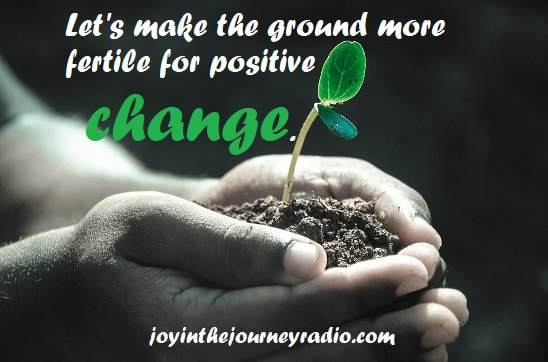

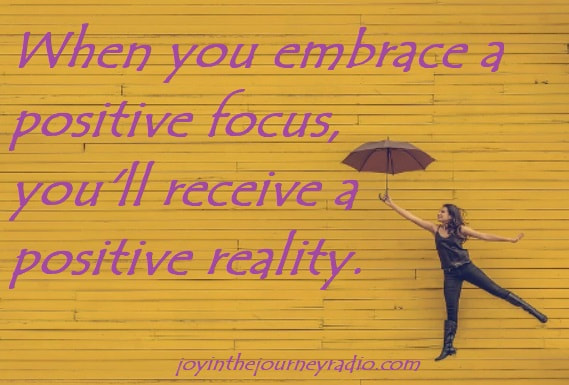
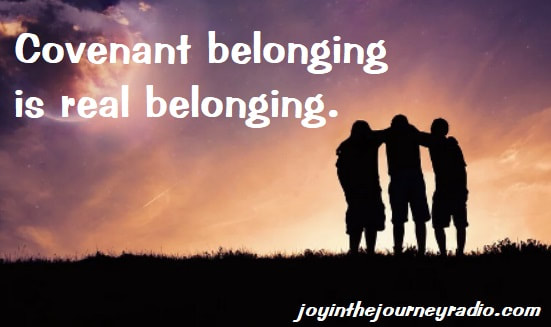
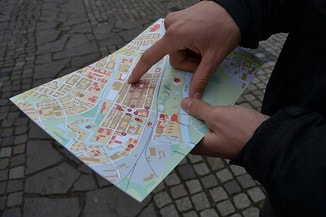
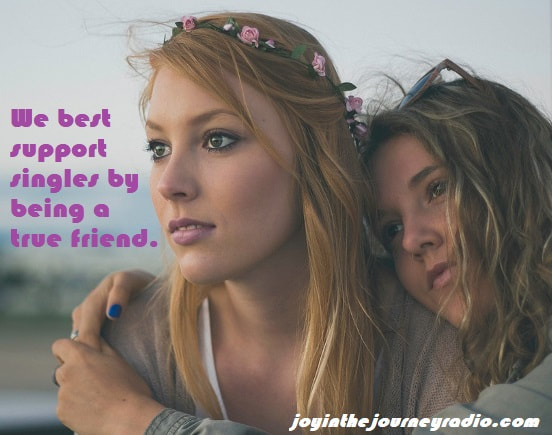
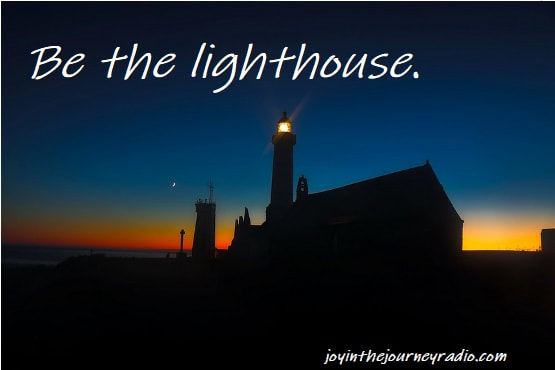

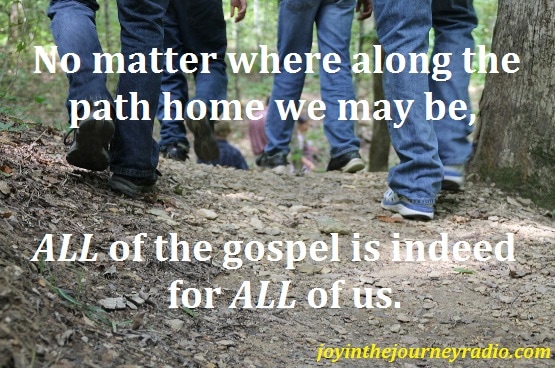
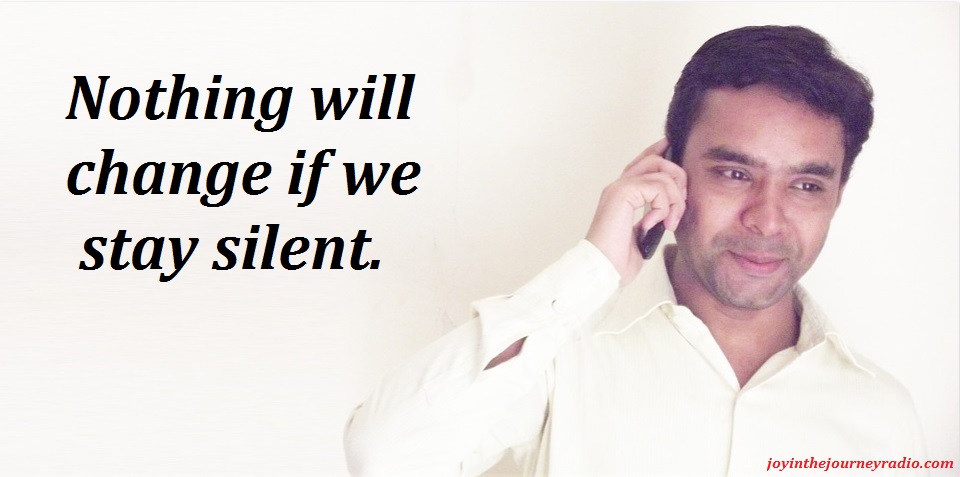

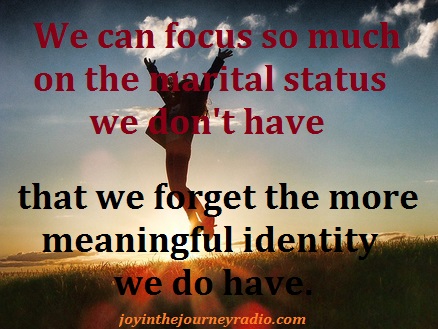

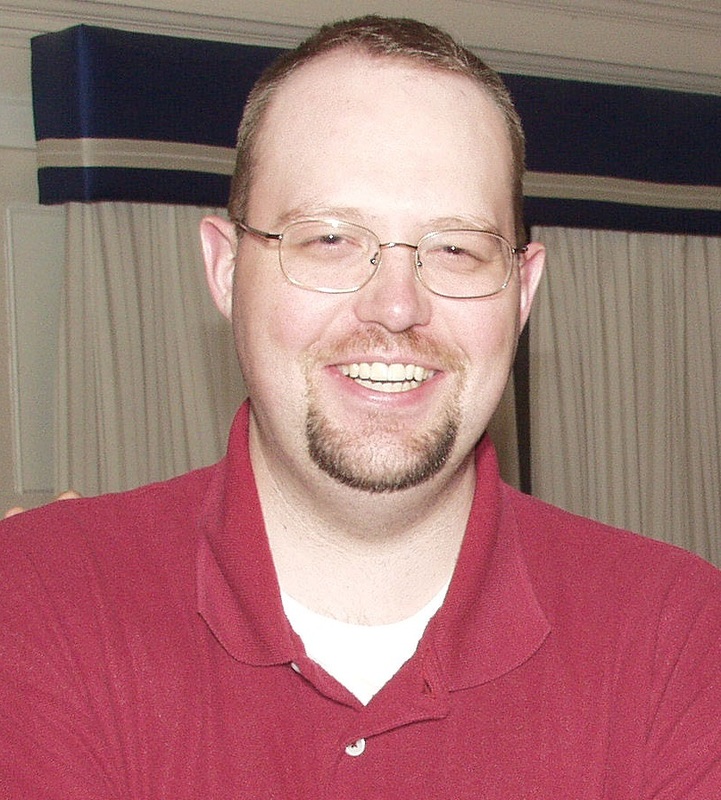
 RSS Feed
RSS Feed